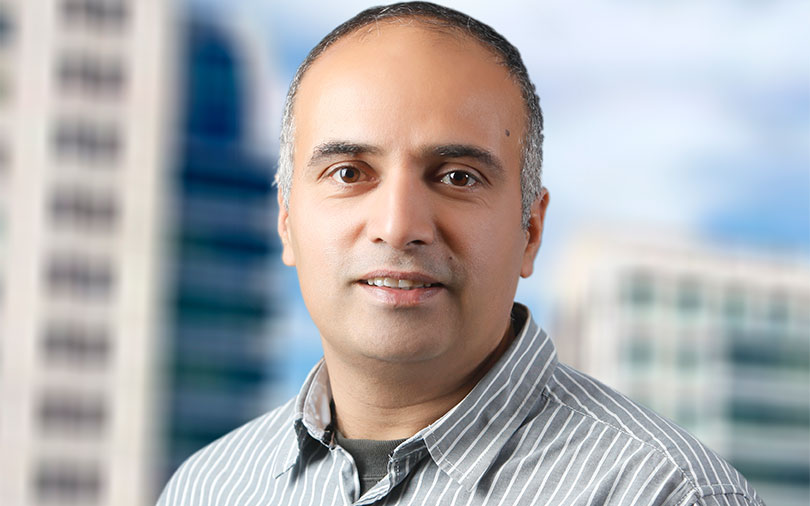
If you lose money on one transaction, you'll lose more as you scale: PolicyBazaar's Dahiya


Last week, online insurance selling platform PolicyBazaar entered the much-coveted unicorn club, an industry term referring to startups valued at $1 billion and more. This was made possible thanks to a $200-million investment round led by Japanese internet conglomerate SoftBank.
Run by ETechAces Marketing & Consulting Pvt. Ltd, the company was founded in 2008 by Yashish Dahiya, Avaneesh Nirjar, and Alok Bansal. It offers insurance policies through a website and mobile app
Besides PolicyBazaar, ETechAces operates Paisabazaar an online loans and credit card marketplace. The entity was founded in 2014 by Naveen Kukreja, who is also PolicyBazaar’s chief marketing officer.

In December 2017, VCCircle had reported the company had hired merchant bankers for an initial public offering, seeking a valuation of $1.5-2 billion. However, since the SoftBank funds raise, plans for the share sale have been put on hold.
In March, media reports had stated that PolicyBazaar was launching a health-tech platform, called PaisaWiki, where it will offer health insurance products . The firm had partnered with medical professionals, hospitals, clinics and diagnostic centres for the venture.
Co-founder Dahiya spoke to TechCircle about how the firm plans to use the capital raised, its new healthcare venture, and why the IPO took a backseat. Edited excerpts:

How will you use the capital from the latest funding round?
Now, we have more than $300 million in the bank. We don’t have a clear idea on what we are going to use the funds. It is a profitable company. Of course, the healthcare venture we have tentatively planned a $100-million investment over the next two years. But we will see how that progresses. PolicyBazaar doesn’t require investments. The investment is going to go more towards PaisaBazaar and the healthcare venture.
How did you manage to make PolicyBazaar not only a profitable company but also a profitable unicorn?

We have stuck to certain principles from the day we started. On a direct cost basis for any transaction, we would not lose money. If I can make Rs 10 on something, I would not spend more than Rs 10 on that transaction. I may have management costs over and above that. Neither PolicyBazaar nor Paisabazaar ever did a transaction where they will lose money.
As the number of transactions has grown, we have earned money on transactions. It took care of our fixed costs. The problem is, in my humble opinion and I could be totally wrong about this, there is a disconnect between the business and the investor community. The founder knows and has faith in certain things, but then believes other things, because somewhere the investors want to believe in something else. Businesses where you lose money on a single transaction, but believe that with scale, you won’t lose money, (that’s not true). No, with scale, you will lose even more money. It is justified nowadays because there is a large market out there—let me do this for a while, I will then have a very large market share and I will be the only one standing and then I will make my profits. This is flawed thinking and will only hurt the customers. We are here to help them. As an honest organisation, my belief is that I would behave the same with my consumers, whatever my market share.
Could you elaborate more on how your healthcare venture DocPrime operates?

DocPrime is a doctor on-call service for every person in India. If you want to speak to a doctor, it is absolutely free of cost. You can do it anytime.
What are your revenue streams?
We make about 75% of our revenues from insurance products. Within that, there is an even split between general insurance and life insurance.

What are your revenue targets for 2018-19?
We should be doing around Rs 700 crore in revenue in 2018-19. Premiums will be more than Rs 3,000 crore.
What are your plans for the initial public offering?

IPO, we have to think about it. If we are doing the healthcare venture, with a lot of investment going into that, then it is too early. PolicyBazaar is 10 years old and Paisabazaar is four years old. But the healthcare venture is just three months old. So, it is not appropriate to take it public yet, is my view.
Why did you want SoftBank as an investor?
For the last three years or so, SoftBank has been one of the most disruptive investors across the world. Alibaba, Paytm, and now us. Whichever financial disruption is going on, SoftBank is around and in a big way. They know what is and is not working. To us, that knowledge is very powerful. Secondly, that knowledge gives you confidence. This means that when you believe in something, you are ready to place very large bets on it and hold them for very long. You are confident that you are going to win. SoftBank is superlative in that confidence.
